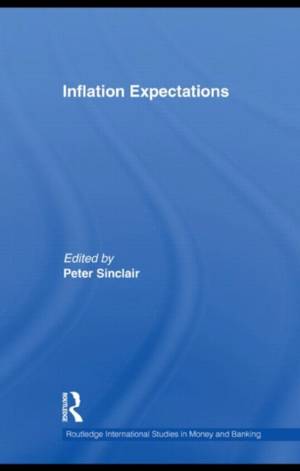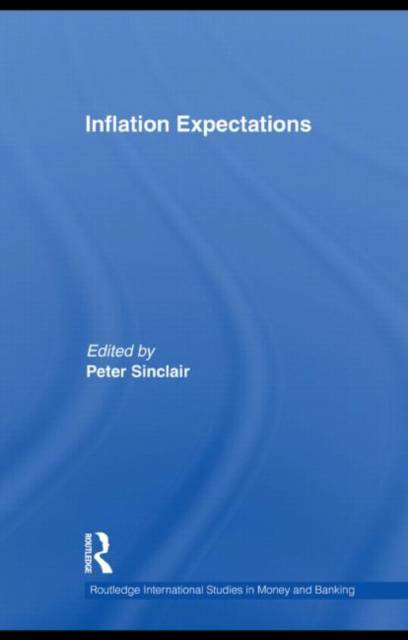
- Retrait gratuit dans votre magasin Club
- 7.000.000 titres dans notre catalogue
- Payer en toute sécurité
- Toujours un magasin près de chez vous
- Retrait gratuit dans votre magasin Club
- 7.000.000 titres dans notre catalogue
- Payer en toute sécurité
- Toujours un magasin près de chez vous
Inflation Expectations
Description
Inflation is regarded by the many as a menace that damages business and can only make life worse for households. Keeping it low depends critically on ensuring that firms and workers expect it to be low. So expectations of inflation are a key influence on national economic welfare. This collection pulls together a galaxy of world experts (including Roy Batchelor, Richard Curtin and Staffan Linden) on inflation expectations to debate different aspects of the issues involved. The main focus of the volume is on likely inflation developments.
A number of factors have led practitioners and academic observers of monetary policy to place increasing emphasis recently on inflation expectations. One is the spread of inflation targeting, invented in New Zealand over 15 years ago, but now encompassing many important economies including Brazil, Canada, Israel and Great Britain. Even more significantly, the European Central Bank, the Bank of Japan and the United States Federal Bank are the leading members of another group of monetary institutions all considering or implementing moves in the same direction. A second is the large reduction in actual inflation that has been observed in most countries over the past decade or so.
These considerations underscore the critical - and largely underrecognized - importance of inflation expectations. They emphasize the importance of the issues, and the great need for a volume that offers a clear, systematic treatment of them. This book, under the steely editorship of Peter Sinclair, should prove very important for policy makers and monetary economists alike.
Spécifications
Parties prenantes
- Editeur:
Contenu
- Nombre de pages :
- 272
- Langue:
- Anglais
- Collection :
- Tome:
- n° 56
Caractéristiques
- EAN:
- 9780415561747
- Date de parution :
- 01-01-10
- Format:
- Livre relié
- Format numérique:
- Genaaid
- Dimensions :
- 155 mm x 236 mm
- Poids :
- 521 g






